| Hollywoodland | Dec 28 2019 |

The more things change the more they stay the same.
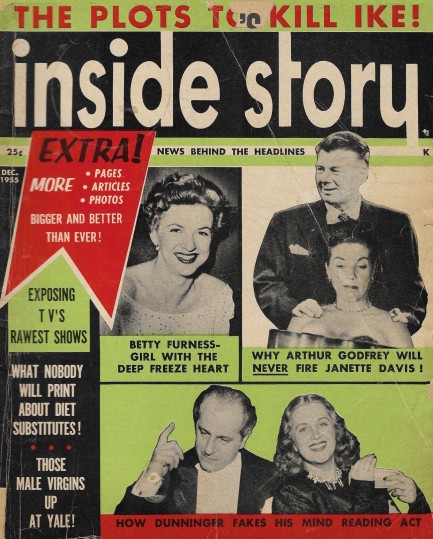
Above is a cover of the U.S. tabloid Inside Story published this month in 1955. There's a lot in this magazine, but since we keep our write-ups short we can't cover it all. One story of note concerns Betty Furness, an actress and pitchwoman whose squeaky clean image Inside Story claims is false. This is a typical angle by mid-century tabloids, the idea that a cinema or television sweetheart was really a hussy, lush, ballbreaker, or cold fish. Furness receives slander number four, with editors claiming she has “ice bound emotions,” “a cold, cold heart,” and is, “tough and tightfisted.” It's interesting that sixty years later resistance to a woman being anything other than a nurturer really hasn't diminished all that much, as many women with high public profiles would confirm.
Another story concerns the death of actress Virginia Rappe and the subsequent arrest of Fatty Arbuckle. In short, Rappe died after attending a party thrown by Arbuckle, with the cause of death attributed to either alcohol induced illness or rape and sodomy with a Coke bottle. Arbuckle went to trial three times before winning a final acquittal, though certain details of the death remained murky. The case was muddied by the influence of sensationalistic journalism, as publishing mogul William Randolph Hearst's nationwide chain of newspapers deemed sales more important than truth. The Coke bottle, for example, was entirely fabricated, but Hearst was unrepentant. He'd fit into the modern media landscape perfectly today, because for him money and influence justified everything.
And speaking of money, a final story that caught our eye was the exposé on the record business, namely the practice of buying spins on radio. The term for this—“payola”—was coined in 1916 but not widely known until the ’50s. Inside Story helps spread the terminology with a piece about pay-for-play on national radio stations. Like the previous two stories, this one feels familiar, particularly the idea that the best music rarely makes it onto the airwaves. Those who engaged in payola understood that people generally consumed whatever was put in front of them, therefore what was the point of worrying about quality or innovation? This remains a complaint about entertainment media today, but repetition still rules. To paraphrase the famed colloquialism: If you ain't going broke, don't fix it. We have thirty-plus scans below.
And speaking of money, a final story that caught our eye was the exposé on the record business, namely the practice of buying spins on radio. The term for this—“payola”—was coined in 1916 but not widely known until the ’50s. Inside Story helps spread the terminology with a piece about pay-for-play on national radio stations. Like the previous two stories, this one feels familiar, particularly the idea that the best music rarely makes it onto the airwaves. Those who engaged in payola understood that people generally consumed whatever was put in front of them, therefore what was the point of worrying about quality or innovation? This remains a complaint about entertainment media today, but repetition still rules. To paraphrase the famed colloquialism: If you ain't going broke, don't fix it. We have thirty-plus scans below.
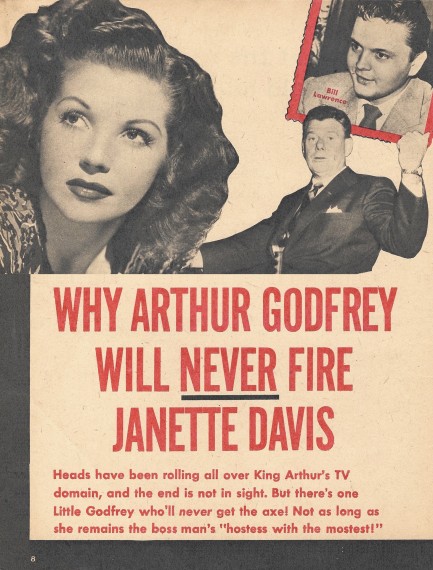
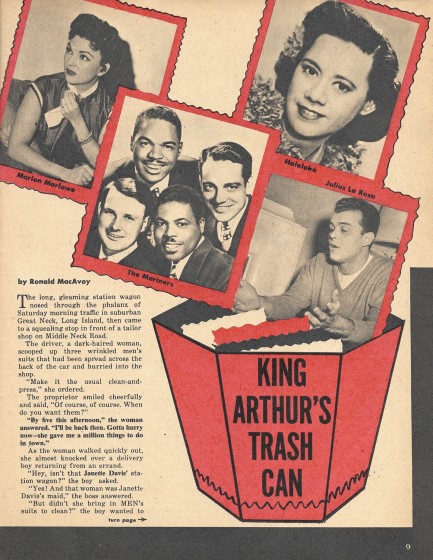
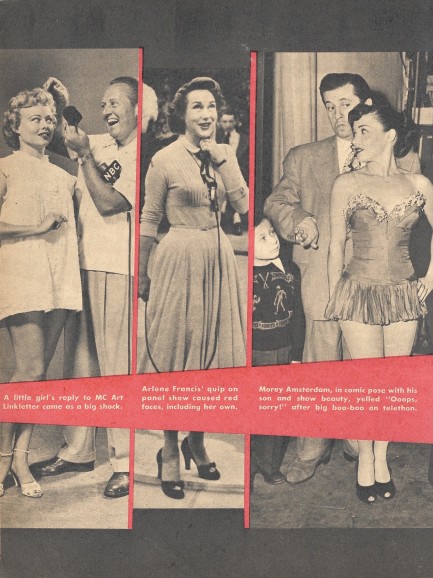
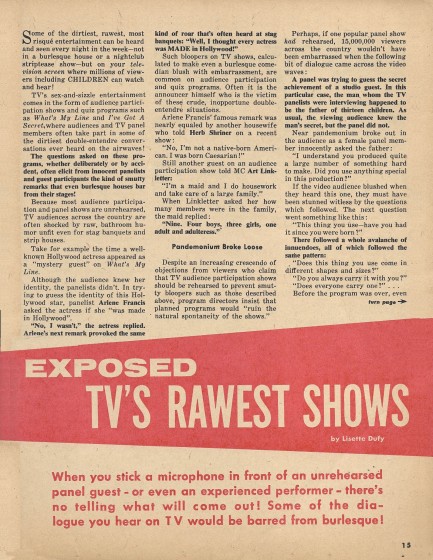
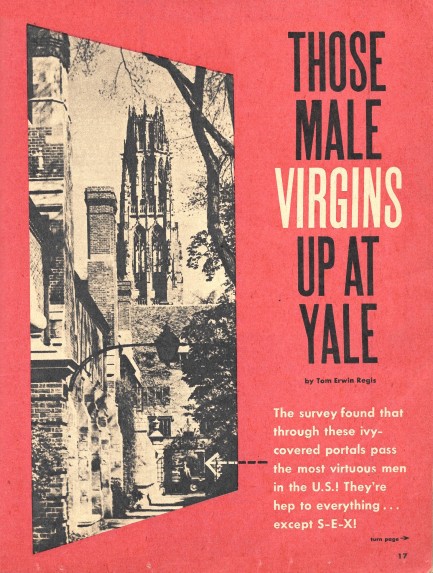
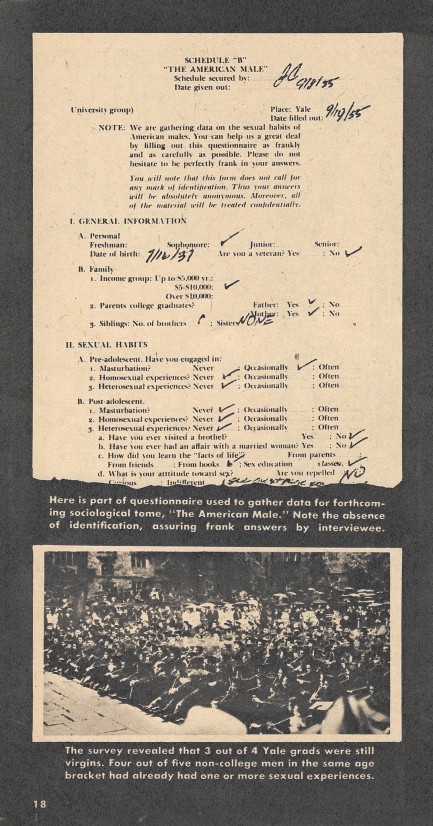
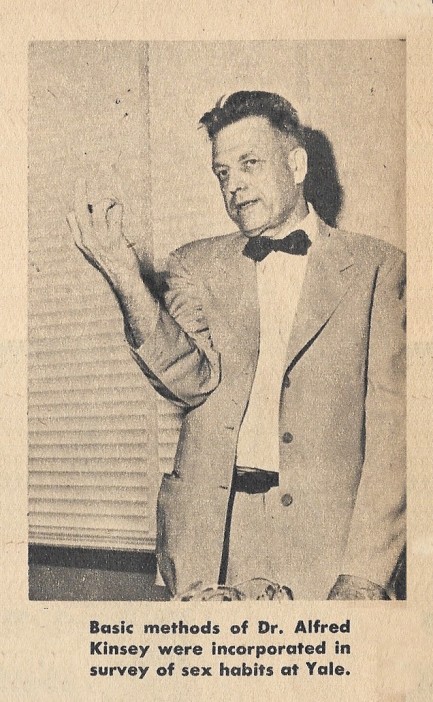
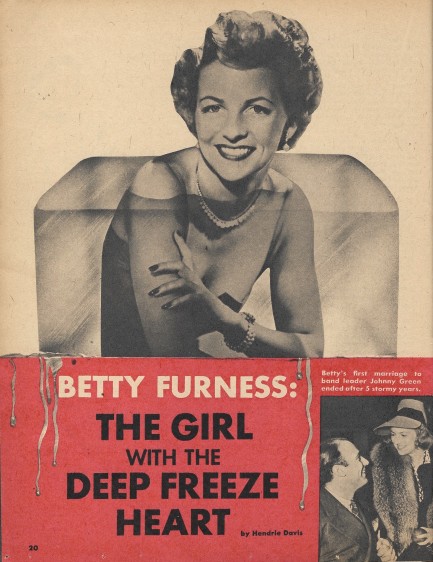
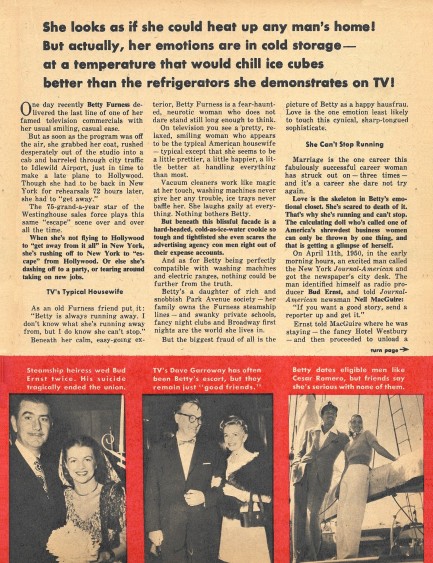
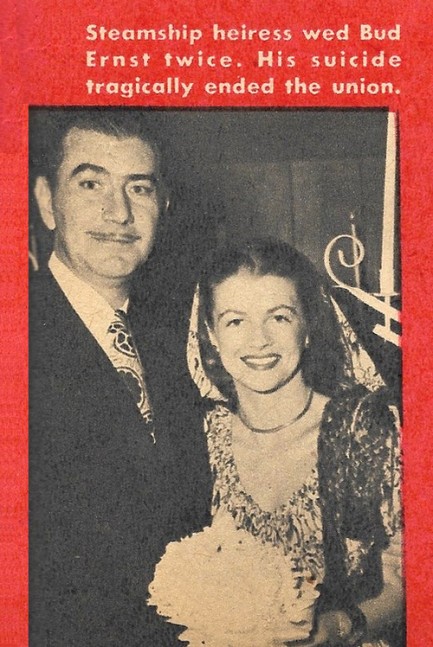
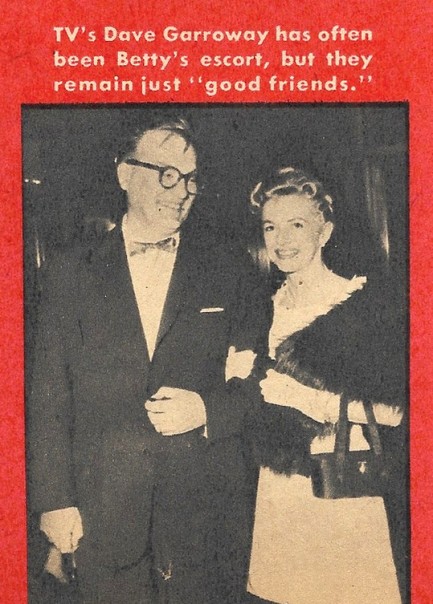
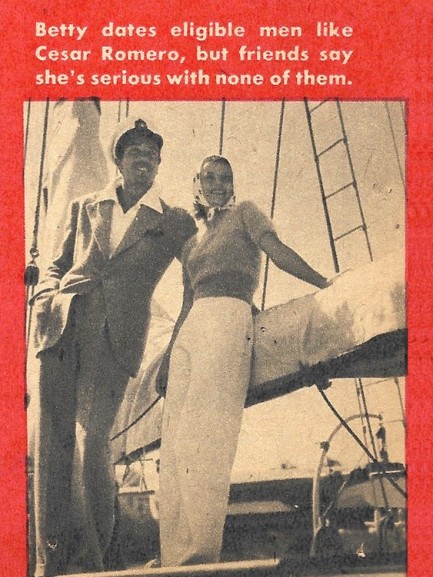
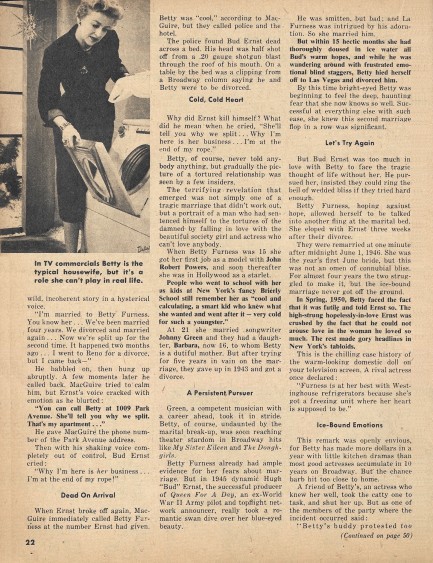
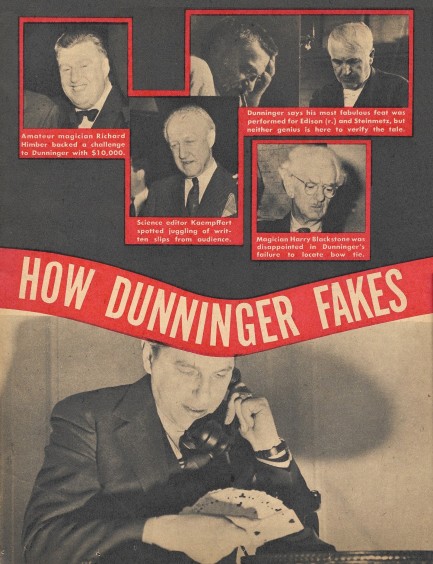
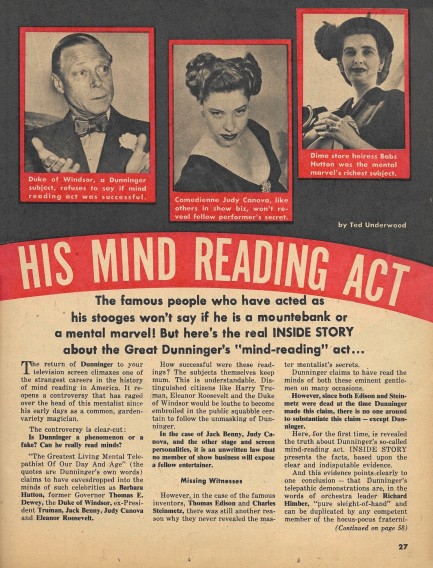
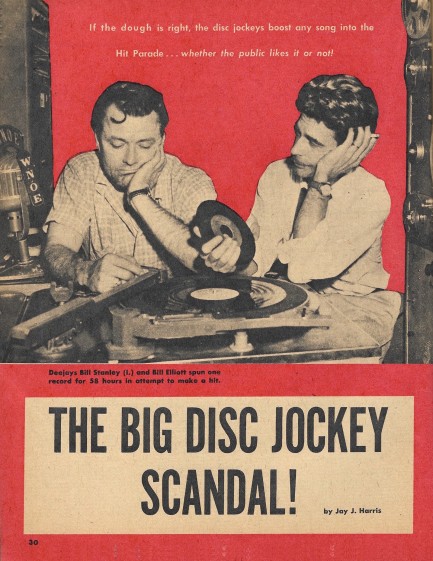
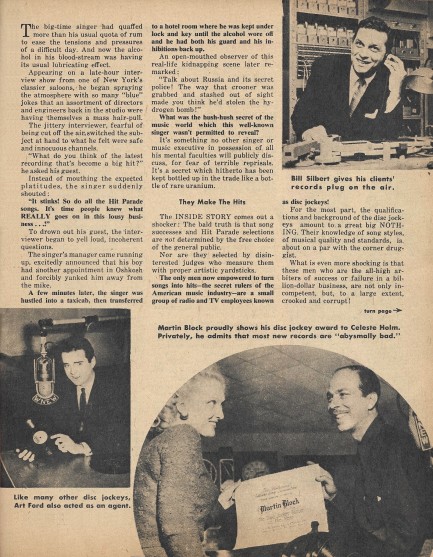
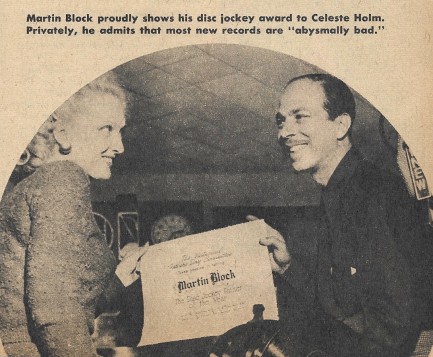
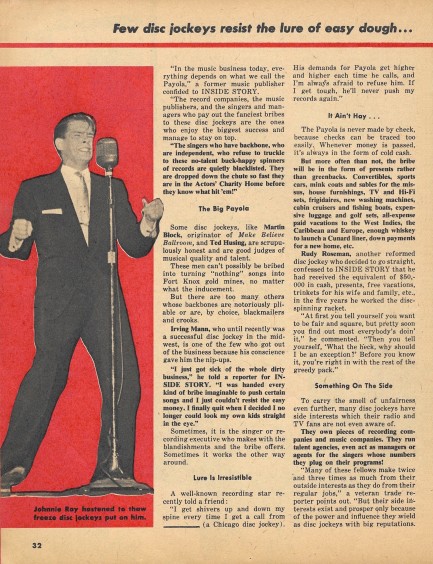
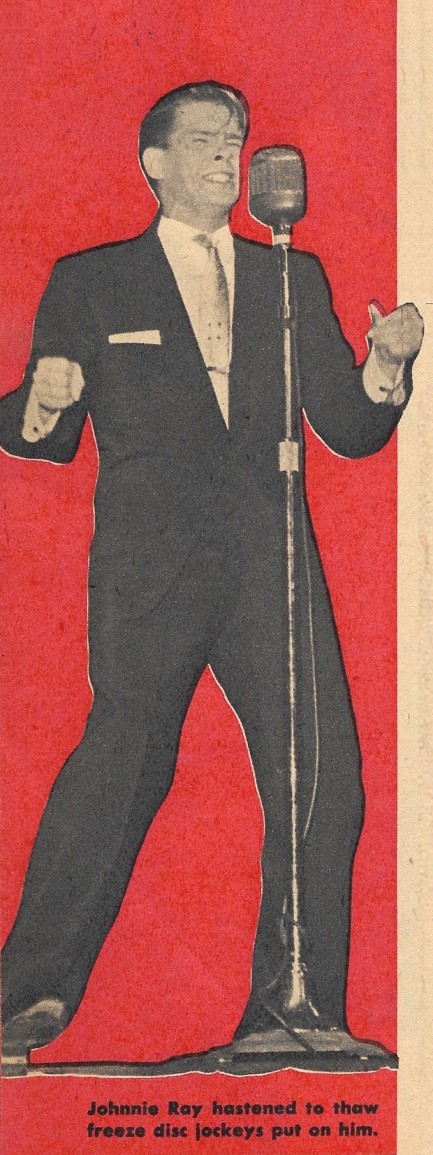
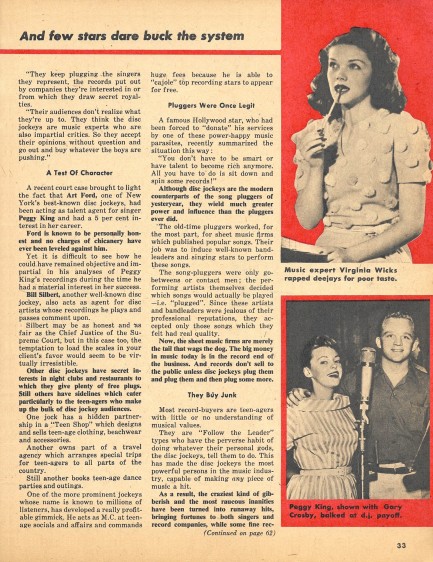
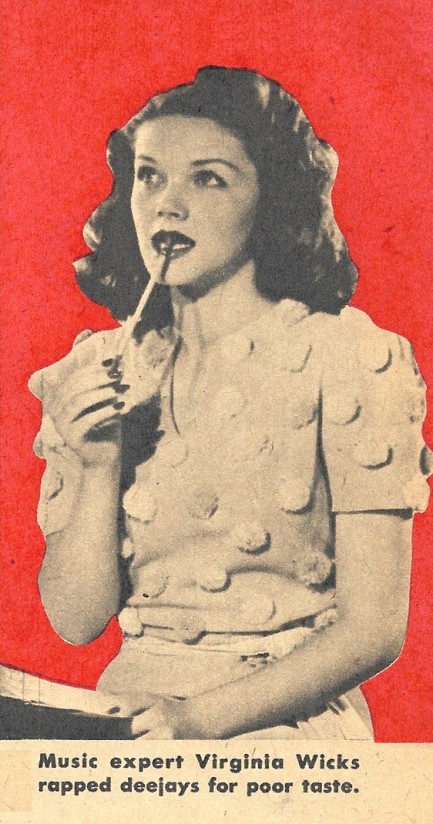
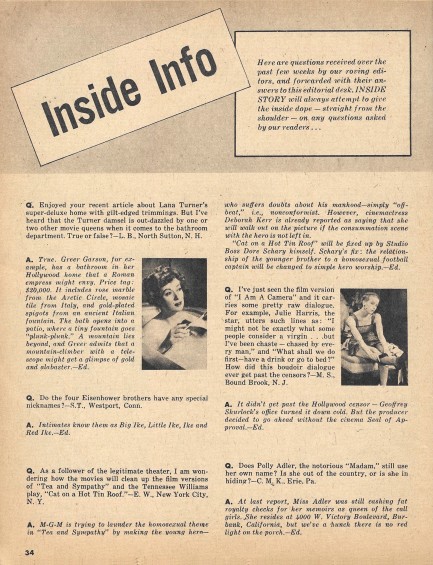
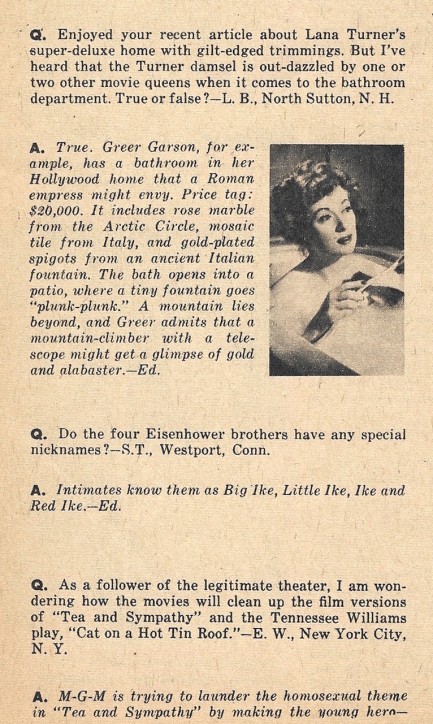
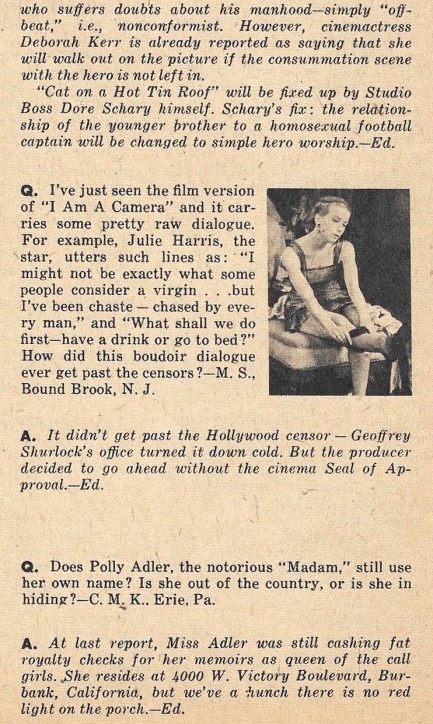
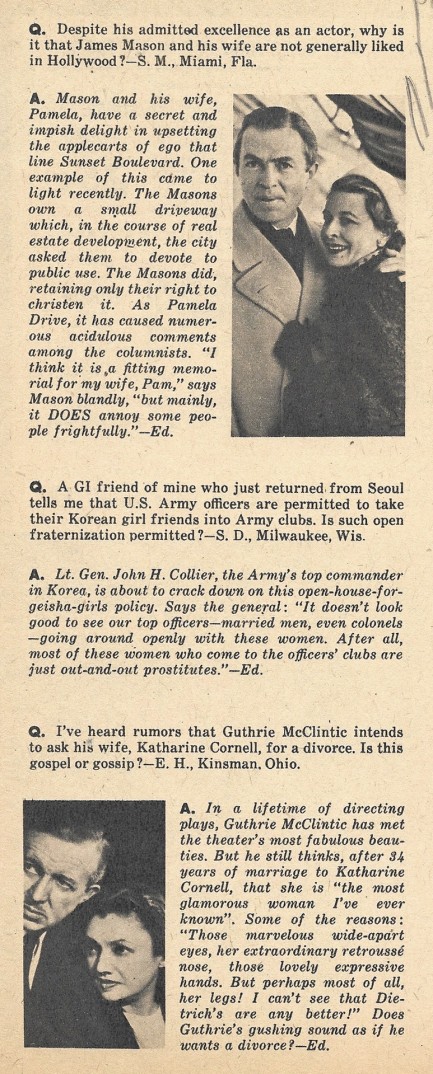
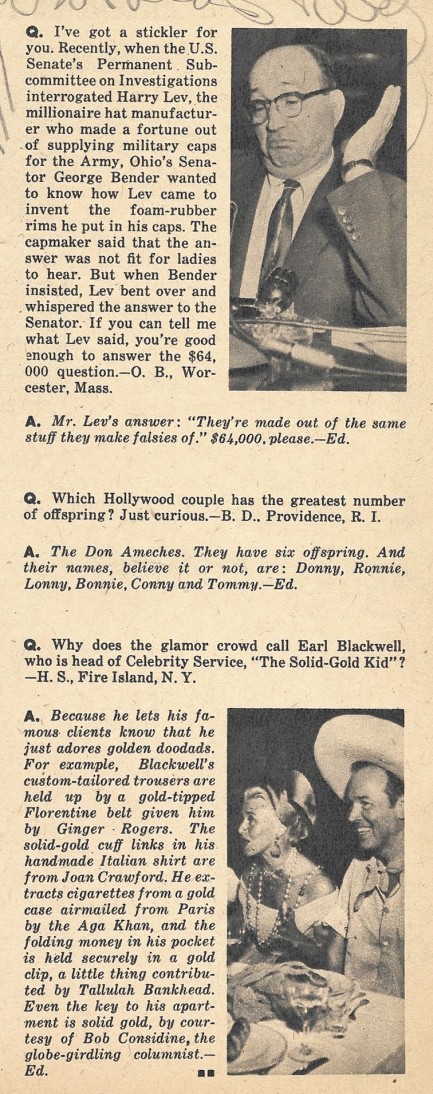
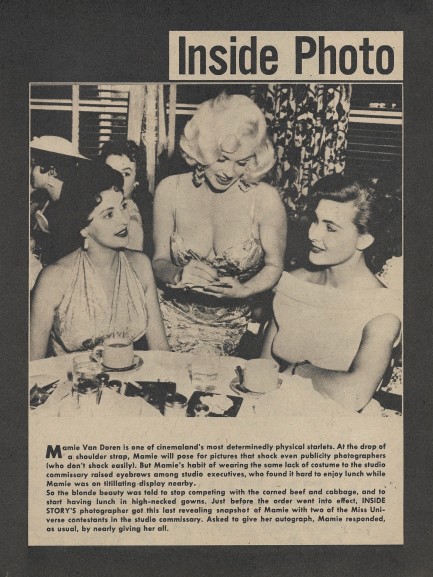
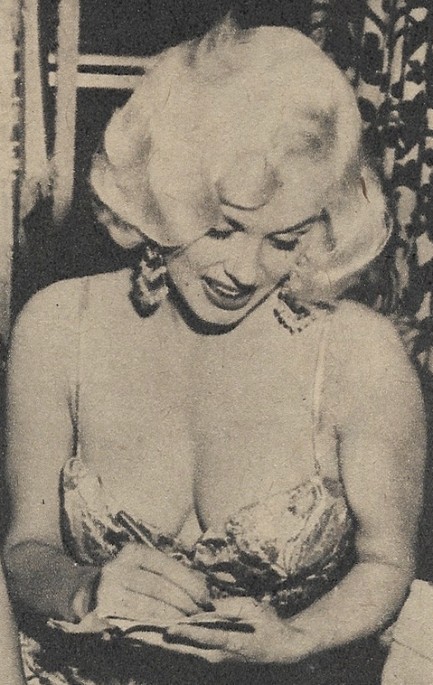
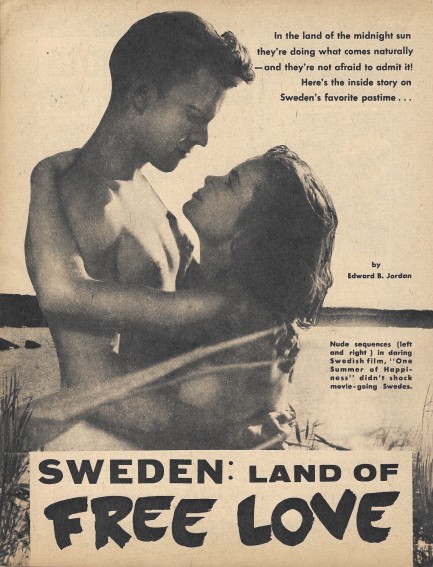
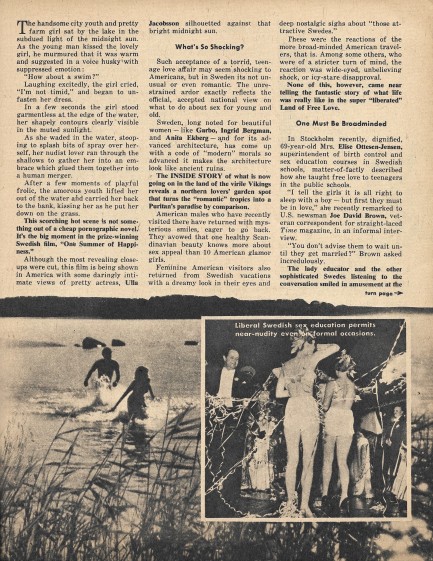
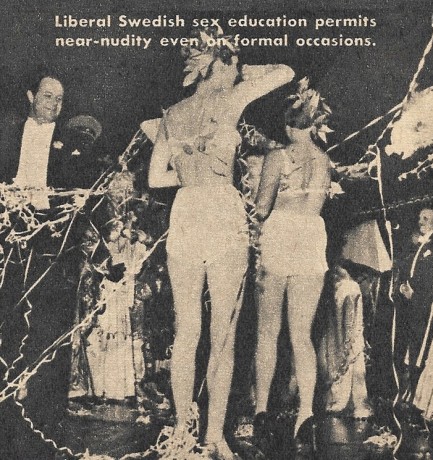
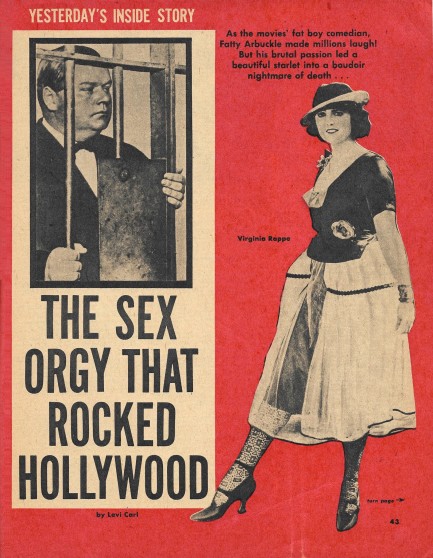
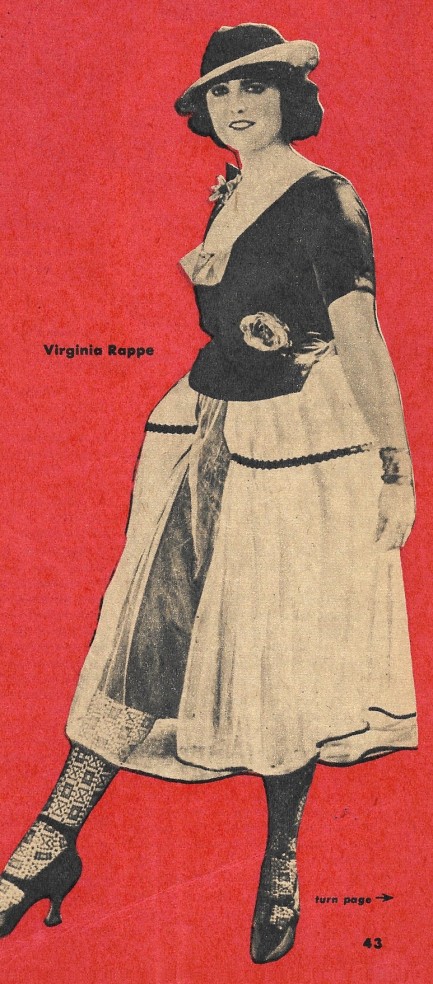
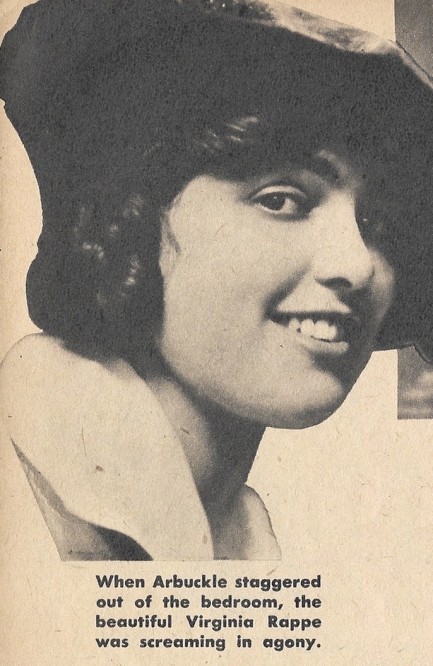
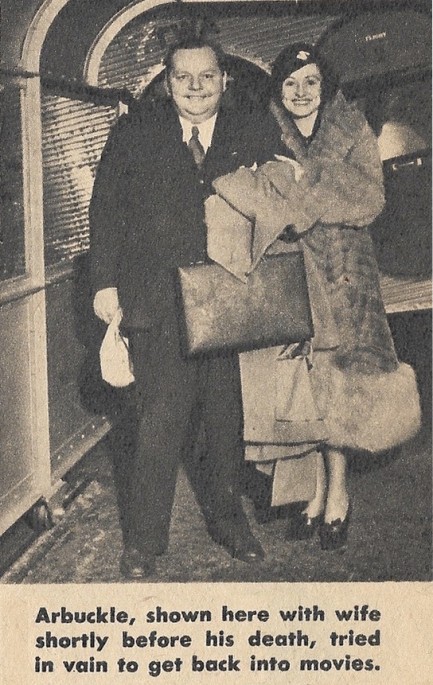
| Intl. Notebook | Nov 12 2014 |

Just when you thought you’d heard the worst about J. Edgar Hoover.
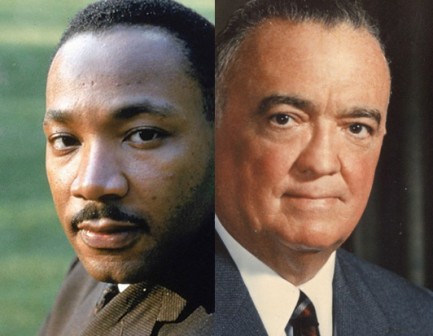
Yale University historian Beverly Gage has found an uncensored version of a threatening letter sent to civil rights activist Martin Luther King, Jr. that FBI director J. Edgar Hoover personally engineered. The letter, which she found as part of research into an upcoming Hoover biography and which has been confirmed as his handiwork, features a fake disgruntled supporter taunting and chastising King, and later urging him to commit suicide. The suicide part is unspoken, but the letter states:
King there is only one thing left for you to do. You know what it is. [snip] You are done. There is but one way out for you. You better take it before your filthy, abnormal self is bared to the nation.
Hoover’s brainstorm was that King would be so afraid of having his marital infidelity exposed that he’d rather die than see his reputation ruined. When King publicly declared that the FBI and Hoover were after him, the cackles of laughter from the mainstream press and general masses reached the mountaintops. And yet, as so often happens in history, it turns out the government had, in fact, acted far beyond its legal mandate, or even everyday sanity. We now know that under Hoover the FBI harassed not only King, but other political figures, various activist groups, and even harmless Hollywood performers. But this letter represents an incredible new low. More tidbits:
King, like all frauds your end is approaching.
Your “honorary” degrees, your Nobel Prize (what a grim farce) and other awards will not save you.
Satan could not do more. What incredible evilness.
There’s more, but you get the gist. The word “evil” is used six times in the one page screed. To imagine the FBI reduced to such an act of impotent cowardice astonishes, but desperate times call for desperate measures—as one of only a few official apartheid nations left in the world at that time, the U.S. was taking a beating in international circles. Scenes of unarmed protesters attacked by German shepherds had played on television sets around the planet. A change had begun that some of the most powerful entities in America wanted stopped. But no smears, no threats, and not even the murder of numerous civil rights activists, including King, could stem the tide.
That swell reached a high water mark. But unhealed wounds, social polarization, regressive lunacy, and political opportunism eventually rolled it back. Today, pundits tell credulous audiences numbering in the tens of millions that the bestowing of equal rights to African Americans was a mistake. Worse, in just the few minutes we spent looking around the internet for a bit of material to write this post we ran into so many defenses of Hoover’s actions that it made us wonder if it was 1965 again. J. Edgar would have liked that. But what he wouldn’t have liked is that his enemy is a global icon while he's a historical embarrassment.
a mistake. Worse, in just the few minutes we spent looking around the internet for a bit of material to write this post we ran into so many defenses of Hoover’s actions that it made us wonder if it was 1965 again. J. Edgar would have liked that. But what he wouldn’t have liked is that his enemy is a global icon while he's a historical embarrassment.
 a mistake. Worse, in just the few minutes we spent looking around the internet for a bit of material to write this post we ran into so many defenses of Hoover’s actions that it made us wonder if it was 1965 again. J. Edgar would have liked that. But what he wouldn’t have liked is that his enemy is a global icon while he's a historical embarrassment.
a mistake. Worse, in just the few minutes we spent looking around the internet for a bit of material to write this post we ran into so many defenses of Hoover’s actions that it made us wonder if it was 1965 again. J. Edgar would have liked that. But what he wouldn’t have liked is that his enemy is a global icon while he's a historical embarrassment.



































































